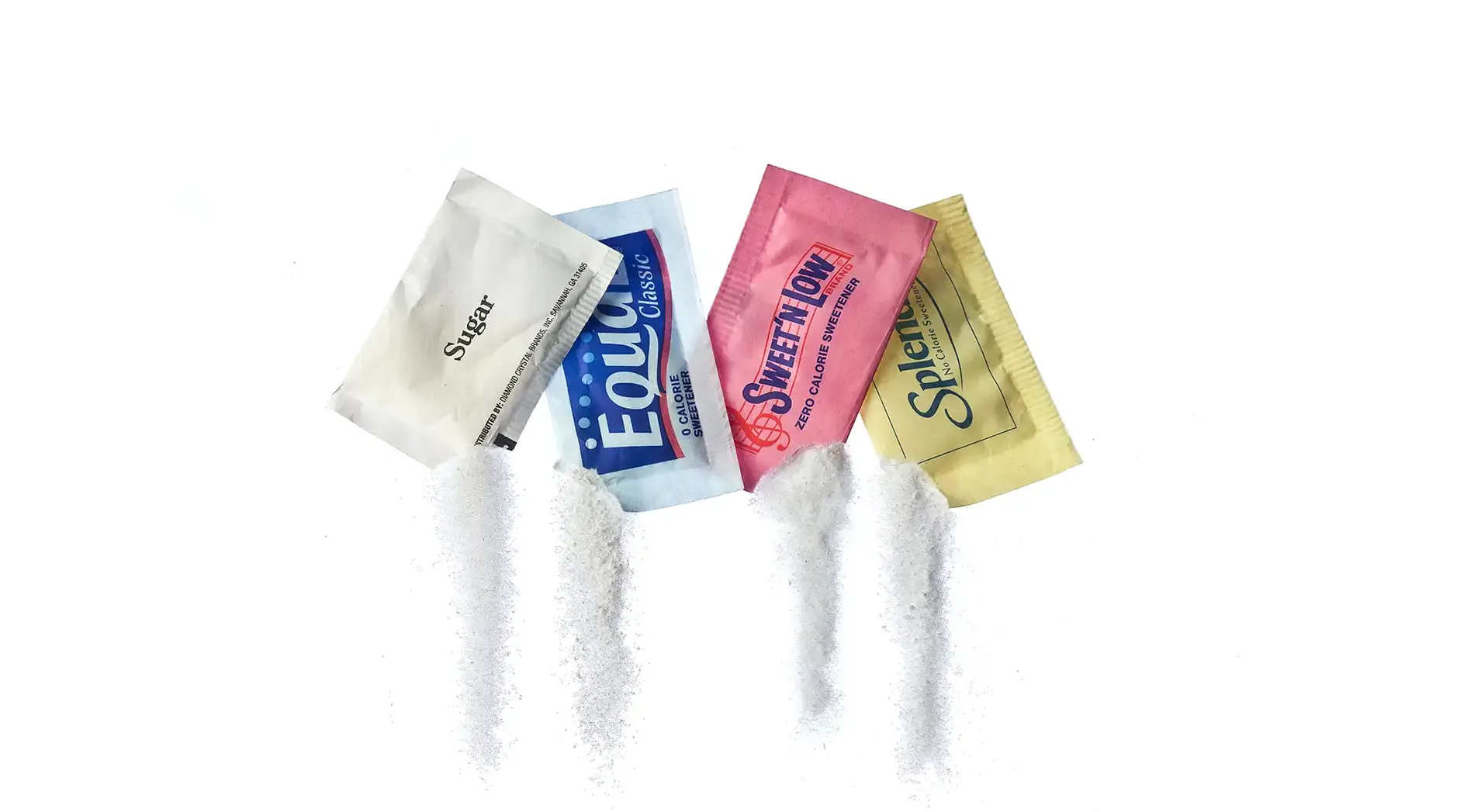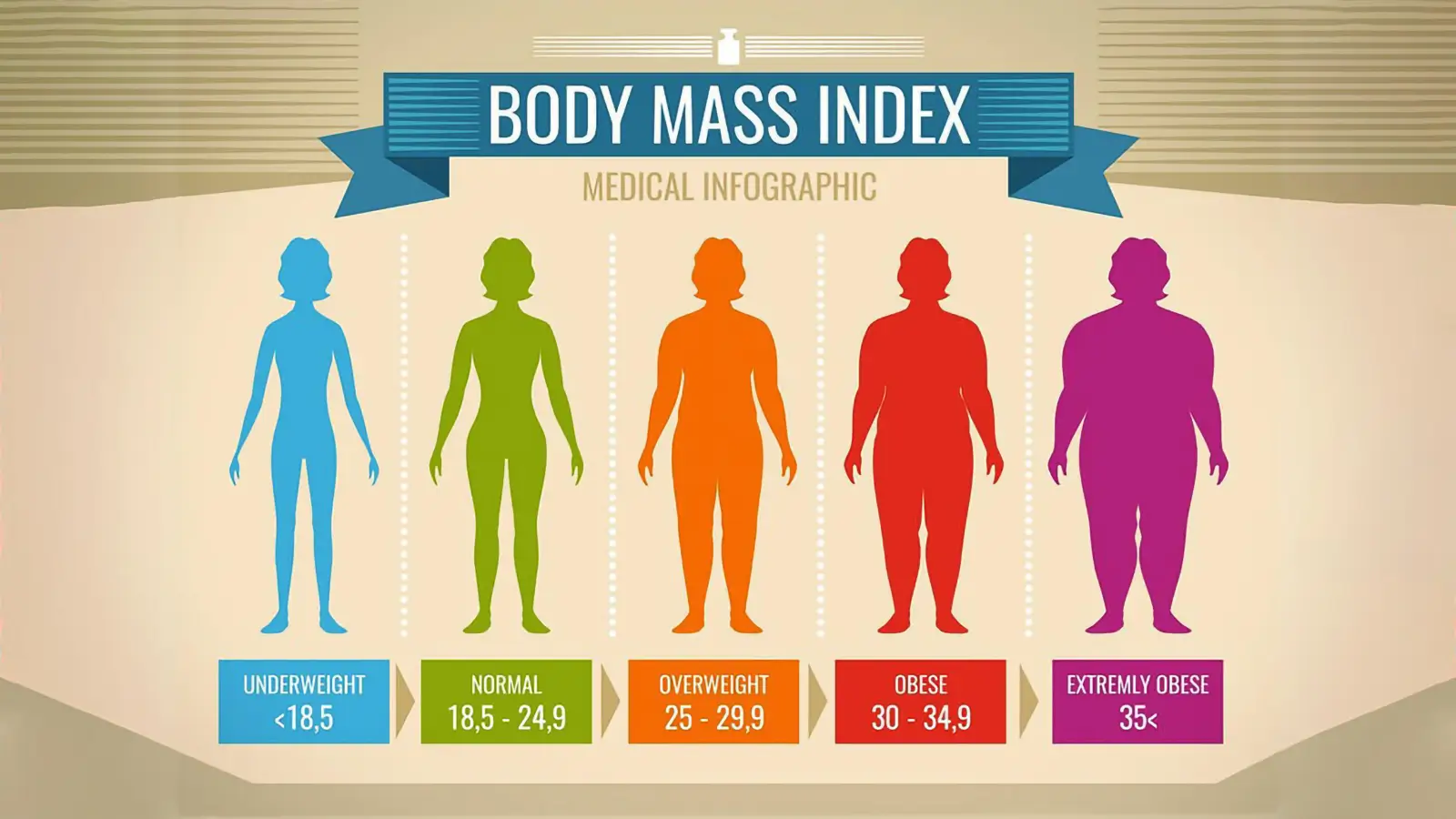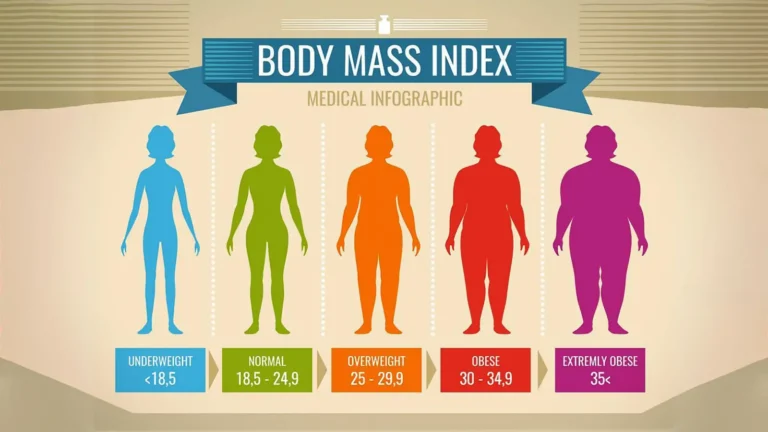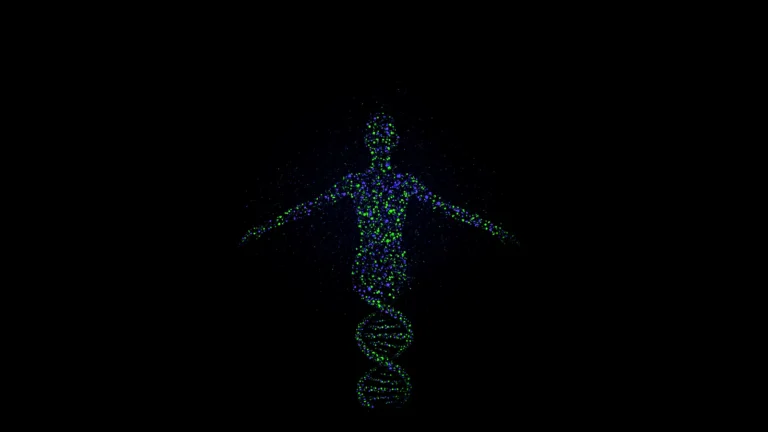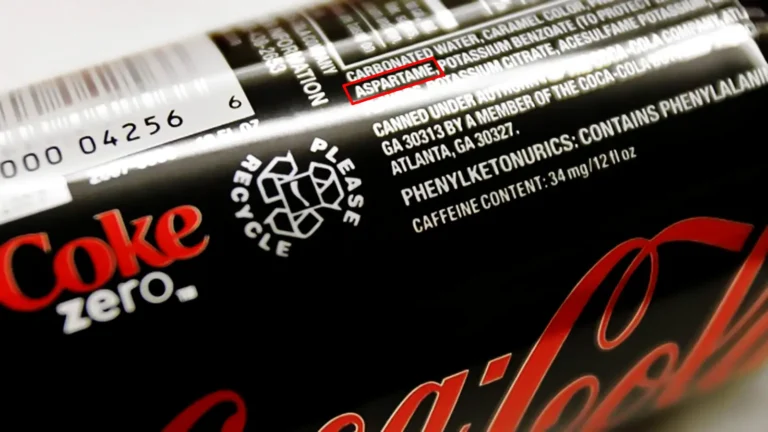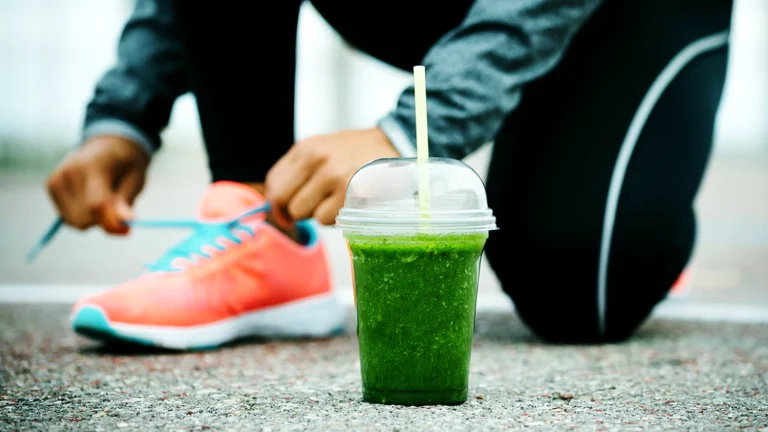Cómo Ayunar: Alimentos en Ayunas Que No Rompen la Autofagia
Para mantenernos en ayunas, la glucemia no debe superar los 100 mg/dL y si llega a 120 se suspende la autofagia. Los alimentos en ayunas se limitan a 20 calorías por ración.
Milos Pokimica
Escrito por: Milos Pokimica
Revisado Médicamente Por: Dr. Xiùying Wáng, M.D.
Actualizado el 9 de febrero de 2024Principales Conclusiones:
– Una de las formas de desencadenar la autofagia es ayunar. Cuando ayunas, privas a tu cuerpo de nutrientes y tus células tienen que depender de sus propias reservas de energía.
– Si desea activar la autofagia, debe reducir sus niveles de insulina, mTOR y AMPK. La forma más sencilla de hacerlo es ayunar durante 14 horas o más.
– No hay una respuesta definitiva sobre cuántas calorías romperían la autofagia, ya que puede depender de varios factores, como el peso corporal, el metabolismo, el nivel de actividad y el tipo de comida o bebida.
– Algunos expertos sugieren que cualquier cantidad superior a 10 a 15 calorías por hora podría detener la autofagia, por lo que los alimentos en ayunas que podemos comer se limitan a menos de 20 calorías por porción.
– Una estimación promedio es que un gramo de carbohidratos puede aumentar el azúcar en la sangre en aproximadamente 4 puntos en promedio. Esto significa que para aumentar el nivel de azúcar en sangre en 1 punto, necesitarías alrededor de 0,25 gramos de carbohidratos, lo que equivale aproximadamente a 1 caloría.
– Para mantenerte en modo de ayuno, el nivel de azúcar en sangre no debe superar los 100 y si llega a 120 se suspende la autofagia. Los niveles regulares de glucosa en sangre en ayunas están por debajo de 100 mg/dL. Para mantener la autofagia necesitamos estar por debajo de 100.
– Para mantenerse dentro del rango una opción segura sería no ingerir más de 20 calorías en una comida.
– No existen alimentos en ayunas que se puedan consumir sin límites durante un ayuno que tengan cero o pocas calorías sin romper el ayuno o detener la autofagia. Sin embargo, algunos alimentos y bebidas en ayunas que son muy bajos en calorías o no tienen calorías pueden no tener efectos significativos sobre el ayuno o la autofagia si se consumen con moderación y precaución.
– Si desea beber kéfir de agua sin romper el ayuno ni detener la autofagia, es posible que desee limitar su ingesta a una pequeña cantidad. No más de una taza en dos horas.
– El kvas de remolacha no es una bebida sin calorías y puede romper el ayuno o detener la autofagia si lo consumes durante el ayuno en una cantidad superior a una taza.
– Las verduras fermentadas son generalmente bajas en calorías. Si no quieres romper el ayuno mantén la porción por debajo de 20 calorías.
– El café puede estimular rápidamente la autofagia activando AMPK e inhibiendo mTORC1.
– El café puede mantener la autofagia manteniendo mTORC1 bajo, pero no manteniendo AMPK alto.
– Los efectos beneficiosos del café pueden deberse a los polifenoles que están presentes en el café.
– El café puede imitar la restricción calórica, que es una forma bien conocida de prolongar la vida y prevenir enfermedades, al reducir los niveles de acetilación de las proteínas celulares.
– La evidencia de los efectos del té en la autofagia durante el ayuno no es muy clara y hay muchas infusiones de hierbas diferentes disponibles.
– También se cree que algunos de los tés, como el té verde, pueden suprimir el apetito durante el ayuno.
– Todos los tés, sin embargo, están libres de calorías y no romperían la autofagia si se consumen durante el ayuno.
– Hierbas y especias son una estupenda forma de añadir sabor y aroma a tus platos sin añadir demasiadas calorías.
– Algunos estudios sugieren que el vinagre de sidra de manzana puede ayudar a reducir los niveles de azúcar en sangre y aumentar la pérdida de peso, los cuales son objetivos comunes para las personas que ayunan (Petsiou et al., 2014) (Lim y otros, 2016).
– Además, el vinagre de sidra de manzana puede ayudar a suprimir el apetito y aumentar la sensación de saciedad, lo que puede ayudarle a comer menos durante su período de alimentación (Darzi et al., 2014).
– El vinagre de sidra de manzana contiene muy pocas calorías y carbohidratos, por lo que no interrumpirá tu ayuno ni te sacará de la autofagia. De hecho, incluso puede mejorar la cetosis al aumentar la producción de cetonas en el hígado.
Autofagia.
¿Se ha preguntado alguna vez qué ocurre con las células de su cuerpo cuando mueren o se dañan? ¿Se amontonan y crean problemas, o se eliminan de alguna manera? La respuesta es que tu cuerpo tiene una forma natural de reciclarse y renovarse, y se llama autofagia.
Autofagia procede de las palabras griegas "auto", que significa uno mismo, y "phagy", que significa comer. Por tanto, autofagia significa autoalimentación. Es un proceso en el que las células descomponen y reutilizan sus componentes, como proteínas y orgánulos. De este modo, tu cuerpo puede deshacerse de las partes viejas e ineficaces y sustituirlas por otras nuevas y funcionales.
La autofagia es esencial para mantener el equilibrio y la salud de nuestras células. Ayuda a prevenir la acumulación de células dañadas, lo que puede provocar enfermedades graves como cáncer, diabetes y neurodegeneración.
Una de las formas de desencadenar la autofagia es ayunar. Cuando ayunas, privas a tu cuerpo de nutrientes y tus células tienen que depender de sus propias reservas de energía.
Esto activa la autofagia, que limpia los residuos y recicla los materiales útiles. El ayuno también puede inducir un tipo de muerte celular denominada muerte celular inducida por la autofagia, que se dirige a las células dañadas o mutadas sin posibilidad de reparación. Esto es diferente de otro tipo de muerte celular llamada apoptosis, que está más controlada y regulada.
El ayuno puede tener muchos beneficios para la salud, como reforzar el sistema inmunitario, reducir la inflamación, mejorar el metabolismo y prolongar la esperanza de vida. Sin embargo, el ayuno también tiene algunos inconvenientes, como la pérdida de masa muscular. Cuando se ayuna, el cuerpo utiliza primero el glucógeno almacenado en el hígado y los músculos. Después, pasa a quemar grasa como combustible. Pero también descompone algunos aminoácidos de los músculos para producir glucosa para el cerebro y otros órganos. Esto significa que perderá algo de masa muscular junto con la grasa.
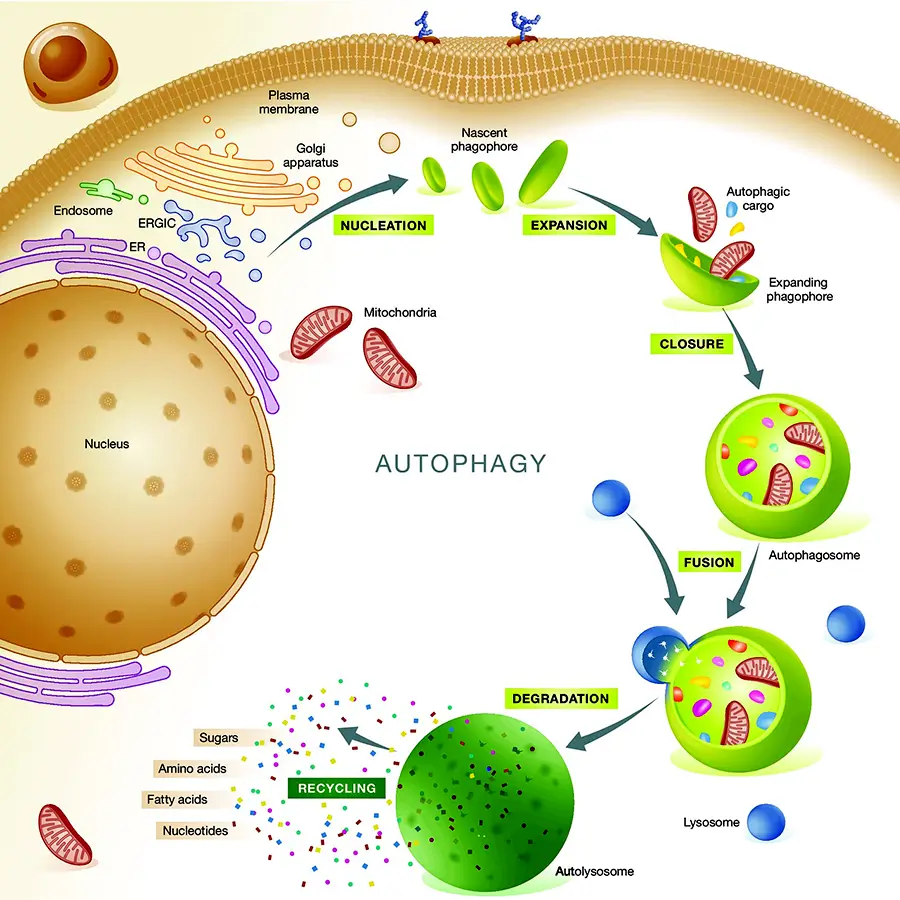
Resumen:
La autofagia es el proceso natural de alimentación del cuerpo que recicla células y componentes dañados, promoviendo la salud y la longevidad. El ayuno es una forma clave de desencadenar este proceso para obtener células más limpias y posibles beneficios para la salud, como reducción de la inflamación y aumento de la inmunidad.
Cómo Desencadenar la Autofagia.
En el mundo actual, siempre hay comida disponible y rara vez ayunamos durante períodos prolongados. Esto significa que perdemos los beneficios de la autofagia, como por ejemplo:
- Reducir la inflamación y el estrés oxidativo.
- Prevenir enfermedades como el cáncer, la diabetes y el Alzheimer.
- Mejora de la función cerebral y la memoria.
- Retrasar el envejecimiento y prolongar la vida útil
Entonces, ¿cómo podemos activar la autofagia sin morirnos de hambre?
La respuesta es sencilla: ayunando durante 14 horas o más. (Yang et al. 2017).
Hay tres vías principales que regulan la autofagia (Alers et al., 2012):
- Insulina: esta hormona responde a los carbohidratos y proteínas en la sangre. Cuando la insulina es alta, indica que tienes suficiente energía y detiene la autofagia. Cuando la insulina es baja, indica que necesita usar la energía almacenada y comienza la autofagia.
- mTOR: esta enzima responde a las proteínas de las células. Cuando mTOR es alto, indica que tiene suficientes componentes básicos para el crecimiento y detiene la autofagia. Cuando mTOR es bajo, indica que necesita reciclar sus piezas viejas y comienza la autofagia.
- AMPK: esta enzima responde al nivel de energía en las células. Cuando la AMPK es alta, indica que tienes poca energía y comienza la autofagia. Cuando la AMPK es baja, indica que tienes mucha energía y detiene la autofagia.
Si desea activar la autofagia, debe reducir sus niveles de insulina, mTOR y AMPK. La forma más sencilla de hacerlo es ayunar durante 14 horas o más.
Cuando ayunas, tu insulina baja porque no comes carbohidratos ni proteínas. Tu mTOR disminuye porque no estás comiendo proteínas. Y su AMPK aumenta porque sus células se están quedando sin energía.
Estos cambios activan el glucagón, una hormona que se opone a la insulina y estimula la autofagia. El glucagón le dice a su cuerpo que descomponga la grasa almacenada y la use como combustible. Este proceso también produce cetonas, que son moléculas que pueden cruzar la barrera hematoencefálica y proporcionar energía al cerebro.
Como resultado, ayunar durante 14 horas o más puede acelerar el metabolismo, quemar grasa, mejorar la función cerebral y activar la autofagia.
¿Pero qué pasa si no quieres ayunar durante tanto tiempo? ¿Existe alguna forma de inducir la autofagia más rápido? Sí hay. Puedes usar ejercicio y nutrición para potenciar los efectos del ayuno.
El ejercicio puede aumentar los niveles de AMPK agotamiento del glucógeno o lo que es lo mismo, la energía de los músculos. Esto también puede reducir los niveles de insulina y mTOR al aumentar la captación de glucosa y la descomposición de proteínas. Por lo tanto, el ejercicio puede estimular la autofagia, incluso si usted no está en ayunas durante 14 horas completas. Sin embargo, usted tendría que hacer cardio en ayunas que es muy difícil de hacer para la mayoría de la gente. Si usted tiene algún nivel de sensibilidad a la insulina por debajo del óptimo también podría conducir a la hipoglucemia.
La nutrición también puede influir en la autofagia al modular los niveles de insulina y mTOR. Algunos alimentos pueden reducir los niveles de insulina y mTOR al proporcionar antioxidantes, polifenoles o cetonas. Estos incluyen té verde, café y vinagre de sidra de manzana. Otros alimentos pueden elevar los niveles de insulina y mTOR al proporcionar carbohidratos o proteínas. Estos incluyen pan, pasta, arroz, patatas, frijoles, carne, lácteos, huevos y soja.
Por lo tanto, la nutrición puede mejorar o inhibir la autofagia dependiendo de lo que coma.
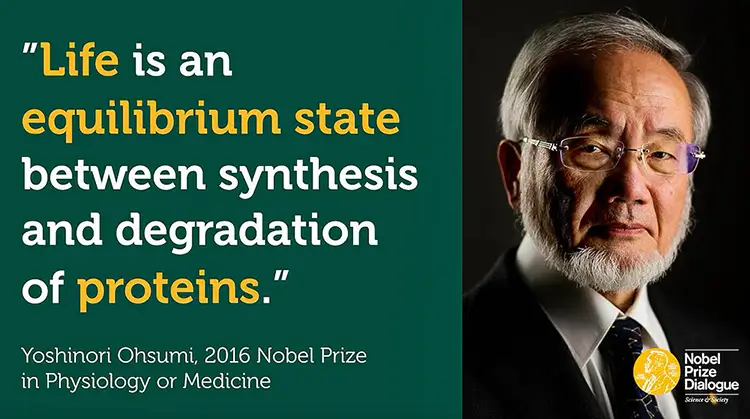
Resumen:
Debido a que hoy en día hay alimentos fácilmente disponibles, perdemos los beneficios de la autofagia, como la reducción de la inflamación y el riesgo de enfermedades. Un ayuno de 14 horas activa este proceso. El ejercicio y ciertos alimentos como el té verde también pueden ayudar.
Alimentos en Ayunas Que No Detendrán la Autofagia.
No existe un consenso claro sobre qué es exactamente lo que rompe el ayuno o detiene la autofagia.
No existe una respuesta definitiva a cuántas calorías romperían la autofagia, ya que puede depender de varios factores, como el peso corporal, el metabolismo, el nivel de actividad y el tipo de comida o bebida.
Sin embargo, algunos expertos sugieren que todo lo que supere las 10 o 15 calorías por hora podría detener la autofagia, por lo que los alimentos que podemos consumir en ayunas se limitan a menos de 20 calorías por ración.
Sin embargo, esto también significa que incluso una pequeña cantidad de calorías como nata o azúcar en el café podría romper el ayuno y la autofagia.
Por lo tanto, si desea mantener la autofagia, lo mejor es evitar cualquier alimento o bebida que contenga calorías durante su período de ayuno. Puede beber agua, café negro o té sin azúcar, ya que tienen cero o muy pocas calorías y pueden incluso potenciar la autofagia. También puede tomar suplementos que favorezcan la autofagia, como la espermidina, que es un compuesto natural que se encuentra en algunos alimentos.
En términos generales, cualquier alimento o bebida que contenga calorías romperá el ayuno y potencialmente interferirá con la autofagia. Por ello, lo mejor es evitar cualquier alimento o bebida que aporte energía, como por ejemplo:
- Azúcar, miel, almíbar y otros edulcorantes.
- Leche, nata, queso y otros productos lácteos.
- Carne, aves, pescado, huevos y otros productos animales.
- Nueces, semillas, aceites, mantequilla y otras grasas.
- Granos, pan, pasta, arroz y otros almidones.
- Frutas, jugos, batidos y otras bebidas azucaradas.
- Alcohol, refrescos, bebidas energéticas y otras bebidas con cafeína.
Algunos alimentos y bebidas que son muy bajos en calorías o tienen cero calorías pueden no romper el ayuno o detener la autofagia. Sin embargo, algunos de ellos pueden tener efectos sobre el metabolismo o los niveles hormonales. Por lo tanto, es aconsejable consumirlos con moderación y precaución. Algunos ejemplos son:
- Agua: El único alimento verdaderamente sin calorías es el agua, que ayuda a perder peso y otros beneficios. Te mantiene hidratado durante el ayuno sin consumir calorías.
- Café y té: el té y el café negro sin azúcar son muy bajos en calorías e incluso pueden estimular la autofagia al estimular la producción de cetonas. Sin embargo, agregar azúcar, leche, crema o edulcorante romperá el ayuno y detendrá la autofagia. Además, la cafeína puede afectar la calidad del sueño y los niveles de cortisol.
- Vinagre de sidra de manzana: el vinagre de sidra de manzana diluido puede tener algunos beneficios para el control del azúcar en sangre y la supresión del apetito. Sin embargo, también contiene algunas calorías y ácido acético, que pueden afectar la digestión y el esmalte dental.
- Caldo de huesos: El caldo de huesos es un líquido elaborado a partir de huesos de animales y tejido conectivo hirviendo a fuego lento. Es rico en colágeno. Sin embargo, también contiene algunas calorías y puede estimular la liberación de insulina.
- Chicles y mentas: Los chicles y las mentas sin azúcar pueden ayudar a frenar el apetito y refrescar el aliento durante el ayuno. Sin embargo, también contienen edulcorantes artificiales como xilitol o sorbitol, que pueden tener algunos efectos sobre las bacterias intestinales y los niveles de azúcar en sangre.
En resumen, no hay alimentos en ayunas que puedan consumirse sin límites durante un ayuno que tengan cero o pocas calorías sin romper el ayuno o detener la autofagia. Sin embargo, algunos alimentos y bebidas en ayunas muy bajos en calorías o con cero calorías pueden no tener efectos significativos sobre el ayuno o la autofagia si se consumen con moderación y precaución.
Moderación significa no más de 20 calorías en total.
Resumen:
Si bien cualquier cosa con calorías técnicamente rompe el ayuno y potencialmente dificulta la autofagia, algunas opciones bajas en calorías como el café negro pueden estar bien con moderación (menos de 20 calorías). En última instancia, opte por opciones sin calorías, como el agua, para garantizar la activación de la autofagia durante el ayuno.
Niveles de Azúcar en Sangre y Ayuno.
No existe una respuesta sencilla a cuántas calorías se necesitan para aumentar el nivel de azúcar en sangre en 1 punto, ya que depende de varios factores, como el peso corporal, el metabolismo, el nivel de actividad y el tipo de comida o bebida.
Sin embargo, una estimación media es que un gramo de carbohidratos puede elevar el azúcar en sangre unos 4 puntos de media. Esto significa que para aumentar el azúcar en sangre en 1 punto, se necesitarían unos 0,25 gramos de carbohidratos, lo que equivale aproximadamente a 1 caloría.
Sin embargo, esto es sólo una estimación aproximada y el efecto real de los carbohidratos sobre el azúcar en sangre puede variar de persona a persona y de alimento a alimento. Algunos factores que pueden influir en cómo los carbohidratos afectan el azúcar en sangre son:
- El índice glucémico (IG) de los alimentos. El IG es una medida de la rapidez con la que un alimento aumenta el azúcar en sangre en comparación con la glucosa pura. Los alimentos con un IG alto (como el pan blanco, los dulces o los refrescos) aumentan el nivel de azúcar en la sangre más rápidamente y más que los alimentos con un IG bajo (como los cereales integrales, los frijoles o las verduras).
- La carga glucémica (CG) del alimento. La carga glucémica es una medida de la cantidad de hidratos de carbono que contiene una ración de alimento y cómo afecta a la glucemia. La CG tiene en cuenta tanto la cantidad como la calidad de los hidratos de carbono de un alimento. Los alimentos con una carga glucémica alta (por ejemplo, grandes porciones de alimentos con alto índice glucémico) tienen un mayor impacto en la glucemia que los alimentos con una carga glucémica baja (por ejemplo, pequeñas porciones de alimentos con bajo índice glucémico).
- El contenido en fibra de los alimentos. La fibra es un tipo de hidrato de carbono que el organismo no digiere ni absorbe. La fibra puede ralentizar la digestión y absorción de otros hidratos de carbono en la misma comida, lo que se traduce en un aumento menor y más gradual del azúcar en sangre. Los alimentos ricos en fibra (como las frutas, las verduras, los frutos secos y las semillas) suelen tener un IG y una CG más bajos que los alimentos pobres en fibra (como los cereales refinados, los dulces y los zumos).
- El nivel de actividad física. La actividad física puede reducir la glucemia al aumentar la utilización de la glucosa por los músculos y mejorar la sensibilidad a la insulina. Sin embargo, el efecto del ejercicio sobre la glucemia depende del tipo, la intensidad, la duración y el momento de la actividad. El ejercicio antes o después de una comida también puede afectar a la forma en que la comida influye en la glucemia.
Para mantenerse en ayunas, la glucemia no debe subir demasiado de 100 y si llega a 120 se suspende la autofagia. Los niveles normales de glucosa en sangre en ayunas están por debajo de 100 mg/dL. Para mantener la autofagia necesitamos estar por debajo de 100.
| Ayuno | 2 horas después de una comida |
| 70 a 99 mg/dL | Menos de 140 mg/dL |
Por ejemplo, para aumentar el azúcar en sangre de 70 a 99 mg/dL, necesitaría consumir alrededor de 29 calorías, suponiendo que un gramo de carbohidratos aumenta el azúcar en sangre en aproximadamente 4 puntos en promedio. Si tenemos un nivel promedio de azúcar en sangre en ayunas en el rango de, digamos, 75 a 85, 30 calorías podrían elevar nuestro nivel de azúcar en sangre por encima de 100.
Para mantenerse dentro del rango, una opción segura sería no consumir más de 20 calorías en una comida.
También depende del índice IG del alimento. Potencialmente podríamos comer una comida con más de 30 calorías si la comida tiene mucha fibra y no contiene azúcares libres.
Sin embargo, esto es sólo una estimación aproximada y el efecto real de las calorías sobre el azúcar en sangre puede variar dependiendo de varios factores, como el peso corporal, el metabolismo, el nivel de actividad y el tipo de comida o bebida.
Resumen:
Si bien una caloría puede aumentar el azúcar en sangre aproximadamente un punto, las respuestas individuales varían según el metabolismo, el tipo de alimento y el IG. Para permanecer en modo de ayuno (azúcar en sangre por debajo de 100), evite exceder las 20 calorías por “comida” durante el ayuno. Opte por opciones ricas en fibra y bajas en azúcar para aumentar potencialmente su límite de calorías.
Kéfir de Agua.
Los jugos de vegetales con menos calorías son el jugo de apio y el jugo de tomate, con solo 42 y 41 calorías por taza, respectivamente. Estos jugos también son ricos en vitaminas, minerales y antioxidantes que pueden beneficiar tu salud. Sin embargo, siguen siendo demasiadas calorías si no queremos romper con la autofagia y el ayuno.
Esto significa que durante el ayuno está prohibido cualquier jugo de verduras. Además, debes tener en cuenta que algunos jugos de verduras pueden contener azúcar, sal o conservantes añadidos que pueden aumentar su contenido calórico y reducir su valor nutricional.
Necesitamos jugo de verduras sin azúcar. Y podemos encontrar la respuesta en la fermentación.
El kéfir de agua es una bebida fermentada elaborada con granos de kéfir de agua, que son un cultivo simbiótico de bacterias y levaduras. Los granos de kéfir de agua se alimentan de azúcar, que suele añadirse al agua junto con algunos frutos secos. El kéfir de agua es una bebida probiótica que puede beneficiar a la salud intestinal y al sistema inmunitario, tiene todo el espectro de antioxidantes, minerales y vitaminas que estaban presentes en el zumo antes de la fermentación, pero con pocas calorías. La mayor parte del azúcar sería fermentada por el cultivo de bacterias.
Los cultivos probióticos son beneficiosos para la salud intestinal y el sistema inmunitario, pero los cultivos vivos también consumen parte del azúcar del kéfir de agua durante el proceso de fermentación. Sin embargo, no consumen todo el azúcar, y queda algo de fructosa en la bebida terminada, normalmente un par de gramos por taza.
Por lo tanto, el kéfir de agua no es una bebida sin calorías, y puede romper el ayuno o detener la autofagia si se consume en exceso durante el ayuno. La cantidad de azúcar en el kéfir de agua depende de varios factores, como el tiempo y la temperatura de fermentación, y el tipo y la cantidad de saborizantes. De media, el kéfir de agua contiene entre 2 y 5 gramos de azúcar por taza, una cantidad muy inferior a la de los refrescos o zumos, pero suficiente para aportar algunas calorías y elevar el azúcar en sangre por encima de 100 si lo tomamos en exceso.
Si desea beber kéfir de agua sin romper el ayuno ni detener la autofagia, es posible que desee limitar su consumo a una pequeña cantidad. No más de una taza en dos horas.
También es posible que desees evitar agregar edulcorantes o jugos de frutas al kéfir de agua, ya que aumentarán el contenido de azúcar. Aún puedes disfrutar del sabor picante y gaseoso del kéfir de agua agregando algunas hierbas, especias o frutas bajas en azúcar (como bayas o cítricos) durante la segunda fermentación. Además, fermente el kéfir hasta el final para disminuir al máximo el contenido de azúcar.
Por lo tanto, el recuento de calorías del kéfir de agua puede variar de un lote a otro y de una receta a otra. Puedes utilizar una calculadora nutricional o una báscula de alimentos para estimar las calorías de tu kéfir de agua en función de los ingredientes que utilices. También puede ajustar la cantidad de azúcar, el tiempo de fermentación y el sabor según sus gustos y preferencias.

Resumen:
Si bien los jugos de vegetales están llenos de nutrientes, su contenido calórico los hace prohibidos durante los ayunos centrados en la autofagia. El kéfir de agua, una bebida fermentada con bacterias beneficiosas para el intestino, surge como una alternativa baja en calorías. Sin embargo, el azúcar restante (2-5 g por taza) requiere moderación: no consumas más de una taza cada dos horas para evitar romper el ayuno y obstaculizar la autofagia.
Kvas de Remolacha.
El kvas de remolacha es una bebida fermentada a base de remolacha, sal y agua. Es rico en probióticos, vitaminas, minerales, antioxidantes y fitonutrientes. Aquí hay algunos datos nutricionales del kvas de remolacha:
- Una porción de 177 ml (6 onzas) de kvas de remolacha contiene entre 16 y 72 calorías, dependiendo de la cantidad de azúcar y saborizantes agregados.
- El kvas de remolacha contiene aproximadamente 2 gramos de fibra dietética, 1 gramo de proteína y 6 gramos de carbohidratos por porción de 6 onzas.
- El kvas de remolacha es una buena fuente de vitamina B (incluido el folato) y vitamina C, que son esenciales para la producción de energía, la función inmune y la síntesis de colágeno.
- El kvas de remolacha también proporciona minerales como hierro, calcio, magnesio, potasio y manganeso, que son importantes para la formación de sangre, la salud ósea, la función muscular, la transmisión nerviosa y la defensa antioxidante.
- El kvas de remolacha contiene probióticos y enzimas alimentarias, que son beneficiosos para la salud intestinal, la digestión y la inmunidad. Los probióticos son microorganismos vivos que pueden restaurar el equilibrio natural de las bacterias intestinales y prevenir o tratar diversos trastornos gastrointestinales. Las enzimas alimentarias son sustancias que ayudan a descomponer los alimentos y mejorar la absorción de nutrientes.
- El kvas de remolacha es rico en antioxidantes y fitonutrientes como la betalaína, que es un pigmento que le da a la remolacha su color rojo. Betalain tiene propiedades antiinflamatorias, anticancerígenas y desintoxicantes. También puede ayudar a reducir la presión arterial, mejorar el flujo sanguíneo y proteger el hígado.
El recuento de calorías del kvas de remolacha sin azúcar ni sabores añadidos no es fácil de determinar, ya que puede variar según el tiempo y la temperatura de fermentación.
Sin embargo, una estimación aproximada es que una porción de 177 ml (6 onzas) de kvas de remolacha natural contiene aproximadamente 16 calorías. Esto es mucho más bajo que la mayoría de los jugos de frutas o refrescos, que pueden tener más de 100 calorías por porción.
Sin embargo, todavía no es una bebida sin calorías y puede romper el ayuno o detener la autofagia si la consumes durante el ayuno en una cantidad superior a una taza.
Mire el vídeo a continuación para aprender cómo hacer refresco de jugo de remolacha probiótico con kéfir de agua casero, que contiene más niveles de antioxidantes y probióticos que el jugo de remolacha fresco y es bajo en calorías.
Resumen:
El kvas de remolacha, una bebida de remolacha fermentada, cuenta con impresionantes beneficios para la salud, como apoyo a la salud intestinal, poder antioxidante y un rico contenido de vitaminas y minerales. Si bien su recuento de calorías varía según la fermentación y los aditivos, el kvas de remolacha simple contiene solo 16 calorías por porción de 6 onzas, lo que lo convierte en una alternativa potencialmente baja en calorías a las bebidas azucaradas durante los ayunos (limite a una taza como máximo).
Verduras Fermentadas.
Algunas verduras bajas en azúcar son los pepinos, el apio, la lechuga, las espinacas, la col rizada y el brócoli.
Si fermentamos estas verduras el resultado sería el mismo que con la fermentación del kéfir de agua. Producto final bajo en calorías que tiene el potencial de no romper nuestro ayuno si consumimos una pequeña cantidad.
Las calorías de las verduras fermentadas dependen del tipo y cantidad de ingredientes utilizados, así como del tiempo y la temperatura de fermentación. A continuación se muestran algunos valores aproximados para una porción de 100 gramos (3,5 onzas) de algunas verduras fermentadas comunes, basados en el supuesto de que la fermentación reduce el contenido de carbohidratos en aproximadamente un 10%:
- Chucrut: 19 calorías
- Kimchi: 22 calorías
- Pepinos fermentados: 11 calorías
- Apio fermentado: 14 calorías
- Lechuga fermentada: 12 calorías
- Espinacas fermentadas: 18 calorías
- Col rizada fermentada: 25 calorías
- Brócoli fermentado: 23 calorías
Como puedes ver, las verduras fermentadas generalmente son bajas en calorías. Si no quieres romper el ayuno mantén la porción por debajo de 20 calorías.
Además, existe una diferencia entre las verduras encurtidas, por ejemplo, los pepinos encurtidos, y las verduras fermentadas. En escabeche verduras son verduras que se han conservado en una solución de vinagre caliente, que mata los microorganismos y enzimas que pueda haber en el alimento y no reduce el recuento de calorías. Las verduras fermentadas son verduras que se han salado y dejado a temperatura ambiente, lo que permite que las bacterias beneficiosas y la levadura crezcan comiendo azúcar y produciendo ácido láctico. El ácido láctico conserva las verduras y también realza su sabor y nutrición.
Resumen:
Si bien las verduras bajas en azúcar como el pepino y el apio brillan en forma fermentada, su recuento de calorías sigue siendo importante durante los ayunos. Cíñete a porciones inferiores a 20 calorías (piensa en algunos bocados) y recuerda, las verduras encurtidas son diferentes y no ofrecen la misma ventaja de ser bajas en calorías.
Café.
Una taza de café negro normal elaborado con granos molidos tiene sólo alrededor de 2 calorías. Eso es casi nada comparado con otras bebidas. Una taza de espresso negro tiene incluso menos, sólo 1 caloría. Esto se debe a que el espresso se elabora con menos agua y granos molidos más finos.
El azúcar y la nata aumentarán el contenido calórico de su café, dependiendo de la cantidad que utilice. Por ejemplo, una cucharadita de azúcar tiene unas 16 calorías, y una cucharada sopera de leche y nata unas 20 calorías. Por tanto, si añades una cucharadita de azúcar y una cucharada de nata líquida al café, tu taza tendrá unas 38 calorías.
Por supuesto, las calorías no son lo único que hay que tener en cuenta al tomar café. El café también contiene cafeína, un estimulante que puede afectar a la calidad del sueño y a los niveles de cortisol. El cortisol es una hormona que regula la respuesta al estrés y el metabolismo. Demasiada cafeína puede aumentar tus niveles de cortisol y hacerte sentir ansioso, nervioso o inquieto. También puede interferir en el ciclo del sueño y dificultar conciliarlo o mantenerlo. Por lo tanto, es aconsejable limitar el consumo de café y beberlo con moderación.
¿Cómo activa el proceso de autofagia?
Un estudio reciente exploró estas preguntas observando los efectos del café en los sensores de energía y los niveles de acetilación de proteínas en ratones (Pietrocola et al., 2014). Los investigadores administraron a los ratones diferentes dosis de café, con o sin cafeína, y midieron la actividad de dos importantes sensores de energía: AMPK y mTORC1. AMPK es una proteína que detecta los niveles bajos de energía y estimula la autofagia. mTORC1 es un complejo proteico que detecta los niveles altos de nutrientes e inhibe la autofagia. Los investigadores también midieron los niveles de acetilación de las proteínas celulares, que pueden afectar a su función y estabilidad.
Los investigadores descubrieron que el café puede afectar tanto a los sensores de energía como a la acetilación de proteínas de distintas maneras, dependiendo de la duración y la dosis de administración del café. Cuando dieron café a los ratones, observaron un aumento a corto plazo de la actividad AMPK y una disminución de la actividad mTORC1 en todos los órganos en un plazo de una a cuatro horas. Esto ocurrió tanto con el café con cafeína como con el descafeinado.
Esto significa que el café puede estimular rápidamente la autofagia activando AMPK e inhibiendo mTORC1.
Sin embargo, cuando les dieron a los ratones café en el agua que bebían durante 16 días, observaron una disminución a largo plazo en la actividad de AMPK y una disminución sostenida en la actividad de mTORC1 en todos los órganos. Esto fue cierto tanto para el café al 1% como al 3%, pero no para el café con 10% de cafeína, lo que provocó pérdida de peso en los ratones.
Esto significa que el café puede mantener la autofagia manteniendo mTORC1 bajo, pero no manteniendo AMPK alto.
Los investigadores también descubrieron que el café puede reducir los niveles de acetilación de las proteínas celulares en todos los órganos entre una y cuatro horas después de la ingestión. Esto era cierto tanto para el café con cafeína como para el descafeinado. Descubrieron que el café reducía la acetilación de proteínas tanto en el citoplasma como en los núcleos de las células hepáticas, cardíacas y musculares.
Los investigadores especularon que los efectos beneficiosos del café podrían deberse a los polifenoles presentes en el café.
Los polifenoles son compuestos naturales. que tienen antioxidantes y antiinflamatorios propiedades. También podrían estimular la autofagia al interactuar con receptores celulares o vías de señalización.
En resumen, este estudio demostró que el café puede inducir la autofagia en ratones mediante diferentes dosis y vías de administración y que este efecto no depende del contenido de cafeína. Esto sugiere que el café podría tener un impacto positivo en la salud al activar este mecanismo natural de autolimpieza en las células.
También demostró que el café puede imitar la restricción calórica, que es una forma bien conocida de prolongar la vida y prevenir enfermedades, al reducir los niveles de acetilación de las proteínas celulares.
Resumen:
Sorprendentemente, el café negro (alrededor de 2 calorías por taza) puede estimular la autofagia, el proceso de limpieza celular del cuerpo, sin interrumpir el ayuno. Funciona activando AMPK e inhibiendo mTORC1, ambos actores clave en la autofagia. Disfrútelo negro para obtener el máximo beneficio y considere su impacto potencial en el sueño y los niveles de cortisol.
Té.
El té es una bebida sin calorías que puede hidratar tu cuerpo durante el ayuno. El té también contiene polifenoles, que son compuestos naturales que tienen propiedades antioxidantes y antiinflamatorias. Algunos estudios han sugerido que los polifenoles pueden estimular la autofagia.
Sin embargo, la evidencia de los efectos del té en la autofagia durante el ayuno no es muy clara y hay muchas infusiones de hierbas diferentes disponibles.
También se cree que algunos de los tés, como el té verde, pueden suprimir el apetito durante el ayuno.
Una revisión sistemática reciente intentó responder a estas preguntas examinando la evidencia de 32 estudios que probaron los efectos de diferentes fitoquímicos bioactivos sobre el apetito y la saciedad (Stuby et al., 2019). Los estudios involucraron a adultos con sobrepeso u obesidad, pero por lo demás sanos. La revisión se centró en las plantas más utilizadas, como el té verde, el pimiento rojo y el café.
Los resultados no fueron muy convincentes. La revisión encontró que ninguna de las plantas analizadas en varios ensayos mostró un efecto positivo constante sobre el apetito o la saciedad. En otras palabras, no hubo evidencia clara de que alguno de los bioactivos fitoquímicos podría ayudar a las personas a comer menos o sentirse más satisfechas, incluido el té verde y el café. Además, la revisión encontró que sólo se informaron unos pocos efectos secundarios, pero ninguno grave. Esto significa que los fitoquímicos bioactivos eran generalmente seguros de usar, pero no muy efectivos.
La revisión también explicó los posibles mecanismos de acción de estos remedios naturales. Pueden actuar sobre diferentes objetivos de su cuerpo, como las hormonas del intestino (como el GLP-1 o la grelina) o los receptores del sistema nervioso (como el TRPV1). Estos objetivos pueden afectar su hambre y señales de plenitud. Sin embargo, los mecanismos exactos aún no se comprenden completamente.
La revisión concluyó que la evidencia actual sobre el uso de fitoquímicos bioactivos como supresores del apetito o potenciadores de la saciedad no es en su mayoría concluyente.
Se necesitan estudios más sistemáticos y de alta calidad para determinar los beneficios y la seguridad de estos remedios naturales para bajar de peso. Además, la calidad y composición de estos complementos alimenticios puede variar mucho, ya que no están regulados tan estrictamente como los fármacos. También pueden interactuar con otros medicamentos y provocar eventos adversos.
Para concluir, es poco probable que el té verde suprima significativamente el apetito durante el ayuno, pero esto no significa que el té verde y otras infusiones de hierbas no tengan otros potentes beneficios para la salud. Los beneficios para la salud de las hierbas medicinales están fuera del alcance de este artículo y si quieres beber té durante el ayuno deberías investigar los beneficios para la salud de cada planta que quieras consumir.
Sin embargo, todos los tés no contienen calorías y no romperían la autofagia si se consumen durante el ayuno.
Resumen:
Si bien el café negro podría ofrecer un sorprendente impulso a la autofagia, las afirmaciones de supresión del apetito del té verde siguen sin ser concluyentes. Disfrute de la hidratación sin calorías del té durante su ayuno y recuerde, todos los tés de hierbas no tienen calorías y no romperán su ayuno.
Hierbas Secas y Especias.
Las hierbas y especias son una excelente manera de agregar sabor y aroma a tus platos sin agregar demasiadas calorías. Sin embargo, algunas hierbas y especias pueden tener más calorías que otras, según su tipo y cantidad.
Sal: La sal tiene cero calorías, ya que es un mineral que no aporta ningún tipo de energía al organismo. Sin embargo, la sal también tiene un alto contenido de sodio, lo que puede elevar la presión arterial y causar otros problemas de salud si se consume en exceso.
Albahaca: La albahaca es una hierba verde que pertenece a la familia de la menta. Tiene 23 calorías por 100 gramos y puede agregar un sabor fresco y aromático a sopas, ensaladas, pastas y pizzas. La albahaca también contiene vitaminas A, C, K y B6, además de minerales como hierro, calcio, magnesio y manganeso.
Las hojuelas de chile y la pimienta negra son especias bajas en calorías que pueden agregar picante y sabor a tus platos. Las hojuelas de chile son hojuelas de pimiento rojo triturado que tienen aproximadamente 6 calorías por cucharadita, mientras que la pimienta negra tiene aproximadamente 5 calorías por cucharadita.
| Especia o hierba | Calorías por cucharadita |
| Sal | 0 |
| Vinagre destilado | 1 |
| vinagre de vino tinto | 1 |
| vinagre de sidra de manzana | 1 |
| Albahaca | 1 |
| Berro | 1 |
| Cebollín | 1 |
| Cilantro | 1 |
| Eneldo / Eneldo | 1 |
| Sal de ajo | 1 |
| Pimienta negra | 5 |
| Hojuelas de chile | 6 |
| Orégano | 6 |
| Perejil | 6 |
| comino, molido | 8 |
| Pimenton | 8 |
| polvo de Chile | 8 |
| tomillo, seco | 9 |
| Romero, seco | 9 |
| Salvia, seca | 9 |
Como puede ver, la mayoría de las especias y hierbas tienen menos de 10 calorías por cucharadita, y algunas tienen cero calorías. Puede utilizarlas para sazonar sus comidas sin añadir demasiadas calorías a su dieta. Sin embargo, también debe tener cuidado con el contenido de sodio de algunas especias, como la sal y la sal de ajo, ya que pueden elevar la tensión arterial y causar otros problemas de salud si se consumen en exceso. También debe ser consciente de las posibles interacciones de algunas especias y hierbas con determinados medicamentos o afecciones médicas. Por lo tanto, es aconsejable consultar al médico o a un dietista antes de utilizar cualquier especia o hierba con fines saludables.
Resumen:
La mayoría de las hierbas y especias contienen menos de 10 calorías por cucharadita, y la sal y el vinagre destilado ofrecen opciones sin calorías. Solo tenga en cuenta el sodio que contienen algunos y consulte a un médico antes de usarlos con fines de salud.
Vinagre de Sidra de Manzana.
El vinagre de sidra de manzana es un ingrediente versátil que puede agregar sabor a los platos y brindar algunos beneficios para la salud.
El vinagre de sidra de manzana es un líquido fermentado elaborado a partir de manzanas trituradas. Contiene ácido acético, que es el principal ingrediente activo que le confiere su sabor amargo y sus beneficios para la salud.
Algunos estudios sugieren que el vinagre de sidra de manzana puede ayudar a reducir los niveles de azúcar en sangre y aumentar la pérdida de peso, los cuales son objetivos comunes para las personas que ayunan (Petsiou et al., 2014) (Lim y otros, 2016).
Además, el vinagre de sidra de manzana puede ayudar a suprimir el apetito y aumentar la sensación de saciedad, lo que puede ayudarle a comer menos durante su período de alimentación (Darzi et al., 2014).
Pero la mejor parte es que el vinagre de sidra de manzana contiene muy pocas calorías y carbohidratos, por lo que no romperá su ayuno ni le sacará de la autofagia. De hecho, puede incluso mejorar tu cetosis al aumentar la producción de cetonas en tu hígado.
Sin embargo, antes de empezar a beber vinagre de sidra de manzana, hay algunas cosas que debes saber. A continuación se ofrecen algunos consejos sobre cómo tomar vinagre de sidra de manzana de forma segura y eficaz en ayunas.
- No tomes demasiado. Si bien se han observado algunos beneficios con dosis de hasta 2 cucharadas (30 ml) por día, esta cantidad también puede causar algunos efectos secundarios desagradables, como erosión del esmalte dental e irritación digestiva (Anderson et al., 2021). Una dosis más moderada de 1 a 2 cucharadas (15 a 30 ml) por día debería ser suficiente para obtener algunos de los beneficios sin poner en riesgo su salud.
- Tómalo en cápsulas si no te gusta el sabor. Si el sabor del vinagre de sidra de manzana le resulta demasiado ácido o desagradable, puede optar por las cápsulas. Éstas contienen vinagre deshidratado que puede aportar los mismos beneficios sin el sabor ácido. Sólo asegúrate de seguir las instrucciones de dosificación de la etiqueta y evita los productos que contengan ingredientes añadidos que puedan romper tu ayuno.
- Evite las gomitas y las bebidas. Aunque las gominolas y bebidas de vinagre de sidra de manzana pueden parecer una forma cómoda y sabrosa de obtener su dosis de vinagre, no son adecuadas para el ayuno. Estos productos a menudo contienen azúcar y calorías añadidas que pueden interferir con su ayuno y sacarle de la cetosis. En su lugar, utilice vinagre de sidra de manzana natural o cápsulas.
- Diluirlo con agua. Nunca bebas vinagre de sidra de manzana solo, ya que puede dañar tus dientes e irritar tu garganta y estómago. Dilúyelo siempre con agua antes de beberlo. Una buena proporción es 1 cucharada (15 ml) de vinagre por 8 onzas (240 ml) de agua. También puedes añadir más agua si te parece demasiado fuerte.
- Usa una pajita. Para proteger aún más tus dientes de la acidez del vinagre de manzana, bébelo con una pajita. Esto ayudará a reducir el contacto entre el vinagre y el esmalte, lo que puede prevenir la erosión y la sensibilidad. Después de beber vinagre de manzana, enjuágate la boca con agua y espera al menos 30 minutos antes de cepillarte los dientes.
El vinagre de sidra de manzana es un complemento natural y beneficioso para su rutina de ayuno. Puede ayudar a reducir sus niveles de azúcar en sangre, impulsar su pérdida de peso y mejorar su cetosis. Sin embargo, asegúrese de tomarlo con moderación, diluirlo con agua, utilizar una pajita y evitar gominolas y bebidas que contengan azúcar añadido y calorías. Siguiendo estos consejos, podrá disfrutar de los beneficios del vinagre de sidra de manzana sin romper el ayuno ni perjudicar su salud.
Resumen:
El bajo recuento de calorías del vinagre de sidra de manzana y sus posibles beneficios, como la supresión del apetito y la mejora de la cetosis, lo convierten en una adición prometedora a su ayuno, pero recuerde diluirlo, usar una pajita y evitar gomitas o bebidas con azúcares añadidos para que sea apto para el ayuno.
Preguntas Frecuentes
Referencias:
- Yang, JS, Lu, CC, Kuo, SC, Hsu, YM, Tsai, SC, Chen, SY, Chen, YT, Lin, YJ, Huang, YC, Chen, CJ, Lin, WD, Liao, WL, Lin, WY, Liu, YH, Sheu, JC y Tsai, FJ (2017). Autofagia y su vínculo con la diabetes mellitus tipo II. Biomedicina, 7(2), 8. https://doi.org/10.1051/bmdcn/2017070201
- Alers, S., Löffler, AS, Wesselborg, S. y Stork, B. (2012). Papel de AMPK-mTOR-Ulk1/2 en la regulación de la autofagia: diafonía, atajos y retroalimentación. Biología molecular y celular., 32(1), 2–11. https://doi.org/10.1128/MCB.06159-11
- Pietrocola, F., Malik, SA, Marino, G., Vacchelli, E., Senovilla, L., Chaba, K., Niso-Santano, M., Maiuri, MC, Madeo, F. y Kroemer, G. (2014). El café induce la autofagia in vivo. Ciclo celular (Georgetown, Texas), 13(12), 1987–1994. https://doi.org/10.4161/cc.28929
- Stuby, J., Gravestock, I., Wolfram, E., Pichierri, G., Steurer, J. y Burgstaller, JM (2019). Fitoquímicos bioactivos que suprimen el apetito y aumentan la saciedad: una revisión sistemática. Nutrientes, 11(9), 2238. https://doi.org/10.3390/nu11092238
- Petsiou, EI, Mitrou, PI, Raptis, SA y Dimitriadis, GD (2014). Efecto y mecanismos de acción del vinagre sobre el metabolismo de la glucosa, el perfil lipídico y el peso corporal. Revisiones nutricionales, 72(10), 651–661. https://doi.org/10.1111/nure.12125
- Lim, J., Henry, CJ y Haldar, S. (2016). El vinagre como ingrediente funcional para mejorar el control glucémico posprandial: hallazgos de intervención humana y mecanismos moleculares. Nutrición molecular e investigación alimentaria, 60(8), 1837–1849. https://doi.org/10.1002/mnfr.201600121
- Darzi, J., Frost, GS, Montaser, R., Yap, J. y Robertson, MD (2014). Influencia de la tolerabilidad del vinagre como fuente oral de ácidos grasos de cadena corta en el control del apetito y la ingesta de alimentos. Revista internacional de obesidad (2005), 38(5), 675–681. https://doi.org/10.1038/ijo.2013.157
- Anderson, S., González, LA, Jasbi, P. y Johnston, CS (2021). Evidencia de que la ingestión diaria de vinagre puede contribuir al desgaste erosivo de los dientes en adultos. Revista de alimentos medicinales, 24(8), 894–896. https://doi.org/10.1089/jmf.2020.0108
Contenidos Relacionados
¿Tienes alguna duda acerca de la nutrición y la salud?
Me encantaría saber de usted y responderlas en mi próxima publicación. Agradezco sus aportes y opiniones y espero tener noticias suyas pronto. También te invito a síguenos en Facebook, Instagram y Pinterest para más contenidos sobre dieta, nutrición y salud. Puedes dejar un comentario allí y conectar con otros entusiastas de la salud, compartir tus consejos y experiencias, y recibir apoyo y ánimo de nuestro equipo y nuestra comunidad.
Espero que este post le haya resultado informativo y ameno y que esté preparado para aplicar los conocimientos adquiridos. Si le ha resultado útil, por favor compártelo con tus amigos y familiares que también podrían beneficiarse de ella. Nunca se sabe quién puede necesitar orientación y apoyo en su camino hacia la salud.
– También Te Puede Interesar –

Aprenda Sobre Nutricion
Milos Pokimica es doctor en medicina natural, nutricionista clínico, escritor sobre salud médica y nutrición y asesor en ciencias de la nutrición. Autor de la serie de libros Go Vegan? Revisión de la Ciencia, también dirige el sitio web sobre salud natural GoVeganWay.com.
Descargo De Responsabilidad Médica
GoVeganWay.com le ofrece reseñas de las últimas investigaciones relacionadas con la nutrición y la salud. La información proporcionada representa la opinión personal del autor y no pretende ni implica sustituir el asesoramiento, diagnóstico o tratamiento médico profesional. La información proporcionada tiene fines informativos únicamente y no pretende sustituir la consulta, el diagnóstico y/o el tratamiento médico de un médico o proveedor de atención médica calificado.NUNCA ignore el CONSEJO MÉDICO PROFESIONAL O RETRASAR la BÚSQUEDA de TRATAMIENTO MÉDICO a CAUSA DE ALGO QUE HAYA LEÍDO EN O accesibles a TRAVÉS de GoVeganWay.com
NUNCA APLICAR CUALQUIER cambio de ESTILO de vida O CAMBIOS EN su totalidad COMO UNA CONSECUENCIA DE ALGO QUE HA LEÍDO EN GoVeganWay.com ANTES de CONSULTAR con LICENCIA PROFESIONAL MÉDICO.
En el caso de una emergencia médica, llame a un médico o al 911 inmediatamente. GoVeganWay.com no se recomienda ni aprueba ninguna de los grupos, las organizaciones, las pruebas, los médicos, productos, procedimientos, opiniones u otra información que pueda ser mencionado en el interior.
Selecciones del editor –
Milos Pokimica es doctor en medicina natural, nutricionista clínico, escritor sobre salud médica y nutrición y asesor en ciencias de la nutrición. Autor de la serie de libros Go Vegan? Revisión de la Ciencia, también dirige el sitio web sobre salud natural GoVeganWay.com.
Últimos artículos -
Planta De Noticias Basado En
-
Cuban-Style Black Beans
on junio 24, 2025
-
Oatly Becomes ‘First’ Food Brand To Quality As ‘Climate Solutions Company’
on junio 24, 2025
-
How to Make Vegan Oyako Donburi (Japanese Chicken and Egg Bowl)
on junio 24, 2025
-
3 Easy Vegan Taco Recipes to Make All Summer
on junio 24, 2025
-
Vegan Chipotle Grilled Cheese With Balsamic Caramelized Onions
on junio 24, 2025
-
Vegan Baked Shakshuka With Butter Beans
on junio 23, 2025
-
Lidl Introduces High-Protein Vegan Pudding Pots In Three Flavors
on junio 23, 2025
Top Noticias De Salud — ScienceDaily
- How brain cells meant to help may be making depression worseon junio 24, 2025
Major depressive disorder affects hundreds of millions worldwide, but a key to understanding its origins may lie in the brain’s immune system. New findings spotlight astrocytes—previously overshadowed by microglia—as major players in neuroinflammation that drives depression. These star-shaped brain cells, once thought to only support neurons, are now shown to regulate communication between brain cells and even trigger or amplify inflammatory responses.
- Brain reboot: Gene therapy reverses Alzheimer’s memory loss in miceon junio 24, 2025
UC San Diego scientists have created a gene therapy that goes beyond masking Alzheimer’s symptoms—it may actually restore brain function. In mice, the treatment protected memory and altered diseased brain cells to behave more like healthy ones.
- COVID-19 protein triggers immune attacks on healthy cells — but a common drug can stop iton junio 24, 2025
Scientists have uncovered a stealthy tactic used by the SARS-CoV-2 virus: one of its proteins can leap from infected cells to healthy ones, effectively tricking the immune system into attacking the body’s own tissues.
- USC’s new AI implant promises drug-free relief for chronic painon junio 24, 2025
A groundbreaking wireless implant promises real-time, personalized pain relief using AI and ultrasound power no batteries, no wires, and no opioids. Designed by USC and UCLA engineers, it reads brain signals, adapts on the fly, and bends naturally with your spine.
- Your CT scan could reveal a hidden heart risk—and AI just learned how to find iton junio 24, 2025
What if your old chest scans—taken years ago for something unrelated—held a secret warning about your heart? A new AI tool called AI-CAC, developed by Mass General Brigham and the VA, can now comb through routine CT scans to detect hidden signs of heart disease before symptoms strike.
- Recycled plastic is a toxic cocktail: Over 80 chemicals found in a single pelleton junio 23, 2025
Recycled plastic pellets can release a hidden mix of over 80 chemicals into water, disrupting hormones and fat metabolism in zebrafish larvae. Researchers warn that unknown and toxic additives make current recycling practices dangerously unpredictable.
- From cursed tomb fungus to cancer cure: Aspergillus flavus yields potent new drugon junio 23, 2025
In a remarkable twist of science, researchers have transformed a fungus long associated with death into a potential weapon against cancer. Found in tombs like that of King Tut, Aspergillus flavus was once feared for its deadly spores. Now, scientists at Penn and several partner institutions have extracted a new class of molecules from it—called asperigimycins—that show powerful effects against leukemia cells. These compounds, part of a rare group known as fungal RiPPs, were bioengineered […]
PubMed, #Dieta vegana –
- Planting Rights and Feeding Freedom: Navigating the Right to a Vegan Diet in Hospitals and Prisonson junio 20, 2025
The legal recognition of veganism highlights the evolving landscape of dietary choices and their status under human rights law. This paper examines the legal status of vegan diets under the European Convention on Human Rights (ECHR), focusing on public institutions such as prisons and hospitals. By analyzing the first relevant cases before the European Court of Human Rights, it explores the protection of vegan diets under Articles 9 (freedom of thought, conscience, and religion) and 14…
- Dietary pattern and nutritional assessment in a cohort of mothers identified by neonatal screening for cobalamin deficiency in offspring: an Italian single center experienceon junio 19, 2025
During pregnancy, nutrient requirements increase while deficiencies can significantly affect pregnancy outcomes. Deficiencies may result from inadequate dietary intake, impaired absorption, or restrictive diets. This study aimed to retrospectively assess the nutritional status and dietary intakes in a cohort of mothers whose newborns were identified with vitamin B12 deficiency of maternal origin through Newborn Screening. Between 2021 and 2024, 107 newborn-mother dyads with altered biomarkers […]
- Intermittent fasting strategies and their effects on body weight and other cardiometabolic risk factors: systematic review and network meta-analysis of randomised clinical trialson junio 18, 2025
CONCLUSIONS: Minor differences were noted between some intermittent fasting diets and continuous energy restriction, with some benefit of weight loss with alternate day fasting in shorter duration trials. The current evidence provides some indication that intermittent fasting diets have similar benefits to continuous energy restriction for weight loss and cardiometabolic risk factors. Longer duration trials are needed to further substantiate these findings.
- Plant-Based Diet and Risk of Iron-deficiency Anemia. A Review of the Current Evidence and Implications for Preventive Strategieson junio 17, 2025
PURPOSE OF REVIEW: This review provides a comprehensive overview of iron metabolism, emphasizing the influence of dietary patterns-particularly vegetarian and vegan diets-on iron status and associated health outcomes.
- Protein Intake and Protein Quality Patterns in New Zealand Vegan Diets: An Observational Analysis Using Dynamic Time Warpingon junio 13, 2025
Background/Objectives: Inadequate intake of indispensable amino acids (IAAs) is a significant challenge in vegan diets. Since IAAs are not produced or stored over long durations in the human body, regular and balanced dietary protein consumption throughout the day is essential for metabolic function. The objective of this study is to investigate the variation in protein and IAA intake across 24 h among New Zealand vegans with time-series clustering, using Dynamic Time Warping (DTW). Methods:…
Publicaciones aleatorias –
Publicaciones destacadas -

La última versión desde PubMed, #Dieta basada en plantas –
- Ashwagandha (Withania somnifera) Plant Extracts Affect the Cytochrome P450 System and Cytotoxicity of Primary Human Hepatocytespor Kelli L McDonald on junio 24, 2025
Ashwagandha (Withania somnifera [L] Dunal) is emerging as one of the top 10 botanicals in the market due to its claimed health benefits as an adaptogen. Alongside its popularity, the lack of standardization in botanical dietary supplements and potential interactions with prescription drugs raise safety concerns. This study aimed to investigate the potential of ashwagandha extracts to induce cytochrome P450 (P450) enzymes, which are critical for drug metabolism and implicated in botanical-drug…
- A multi-domain lifestyle intervention in multiple sclerosis: a longitudinal observational studypor Ilse M Nauta on junio 24, 2025
OBJECTIVE: To examine the effects of a multi-domain lifestyle intervention that advocated a Mediterranean style diet, and concurrently targeted physical activity, stress and sleep, on multiple sclerosis.
- Prospective association of the EAT-Lancet reference diet with body weight changes and incidence of overweight and obesity in a French cohortpor Florine Berthy on junio 24, 2025
CONCLUSIONS: This comprehensive prospective observational study revealed that a stronger adherence to the EAT-Lancet reference diet is associated with a lower body weight and reduced risks of overweight and obesity. Promoting a sustainable plant-based diet seems to be an effective strategy for addressing the global public health challenge of obesity.
- Effects of high oleic and different fatty acid composition edible oils on glucose and lipid metabolism in middle-aged and elderly ratspor Mengyao Wang on junio 23, 2025
CONCLUSION: Under the condition of ad libitum feeding and a fat energy contribution ratio of 35%, PUFA oil are beneficial for improving glucose and lipid metabolism levels, thereby potentially reducing the risk of cardiovascular disease. MUFA oil may lead to an increase in abdominal and overall body fat in rats, ASFA oil may help lower blood glucose levels, while VSFA oil may exacerbate the accumulation of liver fat in rats.
- Childhood mercury exposure and early death in Grassy Narrows First Nation, Canada: a retrospective studypor Donna Mergler on junio 22, 2025
CONCLUSIONS: Early mortality in Grassy Narrows First Nation is higher than other First Nations and the non-Indigenous populations in Canada. Convergent findings from different approaches and statistical techniques support an association between childhood Hg exposure and early death. Morbidity and mortality in this community require follow-up.
- Understanding the intention-behaviour gap in meat reduction: The role of cognitive dissonance in dietary changepor David Fechner on junio 21, 2025
Transitioning to a plant-dominant food system is crucial for mitigating climate change, improving public health, and reducing animal suffering. However, despite growing awareness of these benefits, meat consumption remains high in most developed countries, and many individuals who intend to reduce their meat intake struggle to follow through. This longitudinal study, grounded in the transtheoretical model of change and cognitive dissonance theory, examines the psychological mechanisms […]
